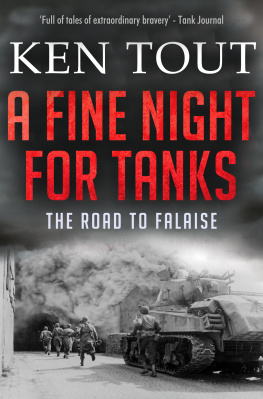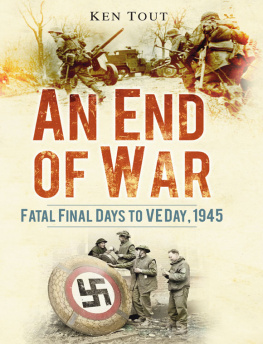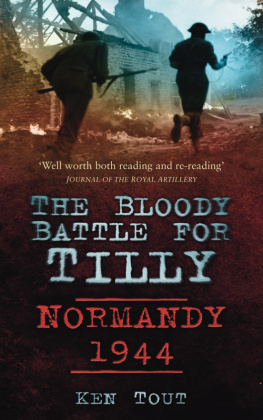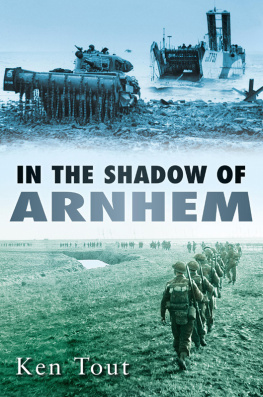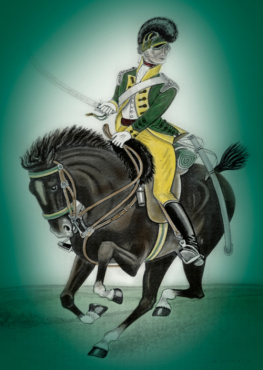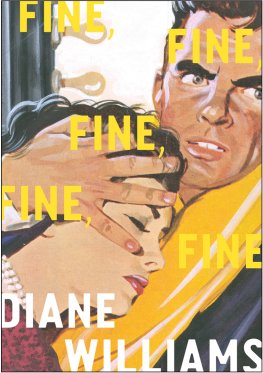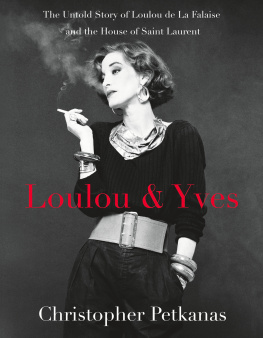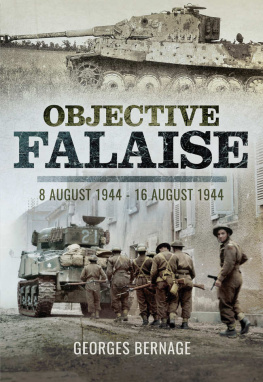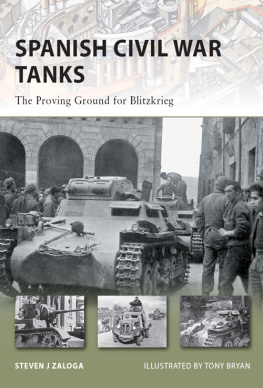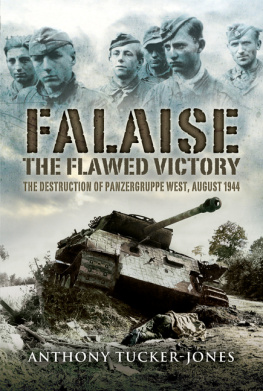A Fine Night For Tanks: The Road To Falaise
Ken Tout
Copyright Ken Tout 1998
The right of Ken Tout to be identified as the author of this work has been asserted by him in accordance with the Copyright, Designs and Patents Act, 1988.
First published in the United Kingdom in 1998 by Sutton Publishing Limited.
This edition published in 2015 by Endeavour Press Ltd.
Table of Contents
Acknowledgements
I have been most fortunate to have a considerable number of surviving eye-witnesses willing to help in the preparation of a review of Operation Totalize Phase 1. In particular, I am lucky to be in touch with five field officers who carried out pivotal roles of tactical importance at the time and who have been most gracious in their information and advice. They are the 1st Northamptonshire Yeomanry navigator, now Lt-Col The Rt Hon The Lord Boardman, MC, TD, DL; the squadron leader of A, 27 CAR (The Sherbrooke Fusiliers), Brig-Gen S.V. Radley-Walters CMM, DSO, MC, CD, OLdH; the COs of 5th Camerons and 2nd Seaforths, respectively Gen Sir Derek Lang, KCB, DSO, MC, DL, and Brig G.L.W. Andrews, CBE, DSO; and the adjutant of 12th SS Panzer Regiment, Maj Georg Isecke.
I may have avoided many errors resulting from my own false impressions by having access to two members of the Totalize crew, 3 Baker, on which I was the gunner. Both Rex Jackson, MM, and Stan Hicken have been most assiduous in analysing memories and helping actively with research. Another one-time sharer of a dug-out refuge under a Sherman at night, Bruce Dickson, has also been most willing, including spending time searching for RAF photos of the appropriate dates very complicated work among hundreds of thousands of, as yet, not adequately archived negatives.
In this kind of research the response of persons managing archives is crucial to the achievement of deadlines. My first port of call had to be the library of the Bovington Tank Museum, seeking the continuing advice of that great tank expert, David Fletcher. Long-range help came from the Canadian Directorate of History and Heritage (Dr Yves Tremblay), the Polish Institute in London (Andrew Suchcitz), the Bundesarchiv (Frau Kuhl), Auskunfte Deutsche Militargeschichte (Dr Ekkehart Guth), Militargeschichtliches Forschungsamt (Hauptmann Hagemann), and the Verband Deutscher Soldaten e. V (Patrick Agte).
Ian Carter at the Imperial War Museum and Mrs Beech at the RAF photo archive in Keele University, as also David Fletcher, solved a number of photo problems.
A special word of thanks is due to those who have so selflessly allowed me to use some of their own unpublished work. Excellent writers and reporters all, they include Brig Geordie Andrews, Len Cottell, Dr John Hooper, Bill Mosely Les Spud Taylor, while Robert Anderson provided me with some of Brig John Hopwoods memoirs. Teresa Suchcitz thought to advise me of the new translation which she and her husband are making of the Polish history and sent me the relevant pages. Don Gillate loaned me his fascinating taped memoirs of Goodwood.
Obviously my old comrades of 1st Northamptonshire Regiment were foremost in contributing among the 1944 officers still surviving: Bing Crosby, Tony Faulkner, Wyn Griffith-Jones and Jim Owen, MC. From turrets and driving cabs were heard the voices, or came the helping hands, of Ray Ager, Jim Alcock, Brian Carpenter, Mack Clague, Brian Coleman, Joe Crittenden, Gordon Dursley, Joe Ekins, Bill Higham, Mike Hunt, Jimmy Kerr, Lou Lakin, Fred Musgove, Jack Pentelow, Charlie Rogers, Peter Smith, John Stenner, Percy Sumner, Wally Tarrant, Herbert Wilkins and others who have shared memories over the years.
Voices from nearby units included Wilf Mylan (1st Northants at Brigade HQ), E. Howley (144 RAC), Bill Deeming (148 RAC/later 1st Northants), and Keith Jones, A.E. Saunders and Reg Spittles, all of 2NY. Other 51st HD assistance was offered by Robert Anderson, John Cutland, John McGregor, Tom Renouf, Charlie Robertson, D.A. Rowan-Hamilton, Angus Stewart and Stan Whitehouse. Ian Hammerton and the Revd W. Ray Birt represented XXII Dragoons and PR. Shurmur, CLY.
Totalize was a Canadian concept and from that country I was guided by Bill McAndrew, John F. Wallace, MC, and Douglas Grey as also Alan Muller, USA. In a memory session at the Polish Institute and subsequently, much advice was forthcoming from Ryszard Dembinski, Zbigniew Mieczkowski, J.W. Suchcitz and Witold Diemel. French help over the years has been freely given by Eddy Florentin; M. Hoste and M. Dupuy Mayor and Alderman of Bourguebus; and Mme Desetable (Mayor), M. Bellenger (Deputy) and M. Dan (farmer) of Saint-Aignan-de-Cramesnil.
As at the start of Totalize, the RAF responded right on target namely, Danny Boon, Ralph Briars, Len Cottell, Roy Grey, Denis Hughes, DFM, Syd Johnson, DFC, W.R. (Bill) Morris, Robbie Robson and Alan Watkins (The Aircrew Association).
Apart from the organizations mentioned, individual German responses were appreciated from Karl-Heinz Decker, Lt-Col Gevert Haslob, Georg Isecke, Hubert Meyer (GSO1 12th SS Panzer Division) and Manfred and Hazel Toon-Thorn, Hazel having set the ball rolling in Germany for me.
Of a more modern generation thanks go to Maj-Gen (Retd) M.F. Reynolds, CB, Winston G. Ramsey (editor of After the Battle ), Frank Paulin (Keele University, translations), Roy. G. Mitchell, Ken Wharton (loans of books), Melvyn Marchant (a son of 1st Northamptonshire Yeomanry) and Euan Withersby (a young student of military history). I would also pay tribute to those writers quoted in this book whose researches have been wider and more profound than mine and without whom the panorama of military history would be very bleak and uninteresting.
It was my privilege and good fortune to have a number of conversations with the late David Bevan MC, squadron leader of C, 1st Northants, when he was able to enlighten me as to higher command reasons for what had often seemed unreasonable to a mere turret gunner. His drawings, while sitting on his turret, still evoke fragrant or tragic memories. I must also acknowledge the guidance of Jonathan Falconer and Sue Thomas, at Sutton Publishing. My wife, Jai, merits thanks and apologies for suffering the household chaos caused by researching a book; she has also been the instigator of journeys back to the slopes and villages where it all happened, and is always a much appreciated adviser. Thank you all! Deepest apologies to anybody I forgot.
Chapter One The Night is Not For Sleeping
At about the last watch, with enough of the night remaining for them to be able to cross the plain under cover of darkness, they got up when the signal was given and marched towards the mountain, which they reached at dawn.
Xenophon, 400 BC
It could have been a lovely night. It had been a beautiful day of hot sunshine and green fields. August Bank Holiday, 1944.
Then, at midnight, the fields had been invaded by dust, smoke, death, confusion, darkness, dazzle, deafening noise. The men riding tanks across those fields suffered a constant bludgeoning motion. They travelled aghast at the menace of the green and red death-dealing flashes, the stench of long-putrefying or recently-charred flesh and the sight of those blazing, tree-high pyres where comrades were being cremated, not after a week of decent mourning or even a tropical day of grief, but instantly, in full view.
August Bank Holiday, traditional day of high summer jollity for the British masses, singing in their charabancs on the way to the beach or, for the better-off family, risking 30 miles an hour on a motorbike and sidecar across the moors. Percy Sumner might have been taking his Sunday School class for a days outing beyond the smoke stacks of Sheffield, perhaps on a tram, but not in a tank. Certainly not on a Churchill Tour of Normandy!

